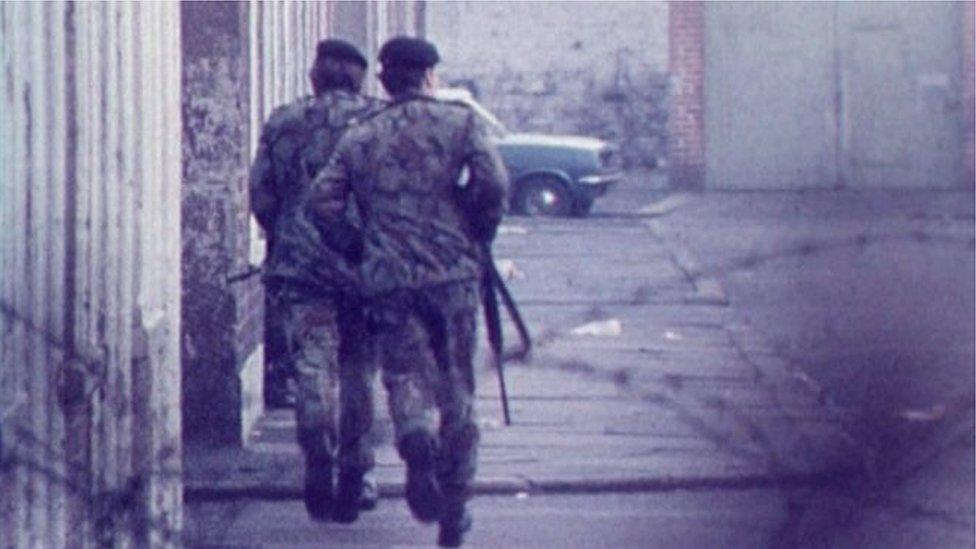DUP raises Troubles legacy concerns with Julian Smith
- Published

The letter, dated last week, was written by DUP leader Arlene Foster
The DUP has highlighted sticking points to a deal on the Troubles legacy issues in a letter sent to Northern Ireland Secretary Julian Smith.
They include examining whether all state-related killings should be investigated by a new body.
In her letter, party leader Arlene Foster details four areas she wants addressed in talks ahead of legislation being tabled at Westminster.
She writes "substantive discussions" are needed on the way forward.
As part of the deal which saw Stormont return, the government pledged, within 100 days, to introduce legislation to implement a legacy deal struck five years ago.
It includes an Historical Investigations Unit (HIU) to look into Troubles killings.

Sinn Féin has requested an urgent meeting about Troubles legacy issues with Secretary of State Julian Smith
Mrs Foster's letter, dated last week, states its caseload should not necessarily examine "all state-related deaths".
It adds that concerns about the HIU "has led to many victims and survivors of terrorism losing confidence or not being supportive".
It suggests victims could help "co-design" it and points out "over 90% of the deaths and injuries of the Troubles were caused by terrorist organisations".
Mrs Foster writes the idea the HIU could also investigate non-criminal police misconduct "is causing considerable angst".
She also repeats the party wants a new definition of a victim to mean a person killed or injured through no fault of their own.
Speaking to Sky News on Sunday, Mrs Foster said "we need to revisit the Stormont House Agreement, because what is being proposed is not acceptable".
"Victims were not treated well in the Belfast Agreement - that was left as an open wound.
"We now have been left, nearly 22 years later, and we're still dealing with these issues."
She said it was important to "recognise what actually happened here in Northern Ireland".
"We did have a terrorist campaign and there were so many innocent victims as a result of that."

A public consultation on proposals to address the legacy of the Troubles in Northern Ireland was launched in 2018
Speaking after Mrs Foster's interview, Sinn Féin's Michelle O'Neill said she had requested an urgent meeting with Julian Smith to address concerns about the British government's approach.
The deputy first minister said: "The British and Irish governments and the political parties, including the DUP, signed up to the Stormont House Agreement to ensure that victims of the conflict could get full disclosure about the killings of their loved ones.
"That agreement must be implemented in full, including the mechanisms for dealing with the legacy of the conflict, and cannot be cherry-picked by the British government or the DUP."
She added: "The British government needs to implement its commitments in full in a human rights compliant manner."
- Published30 April 2019

- Published30 October 2019

- Published1 February 2020
